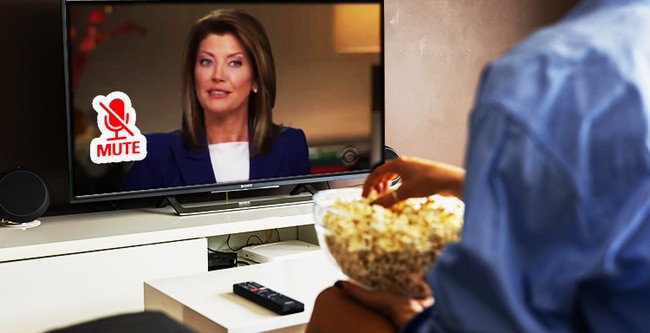Despite years of flip flopping on their own reports, National Public Radio (NPR) CEO Katherine Maher told Congressional lawmakers Wednesday — without hesitation — that the outlet is a “nonpartisan organization” free from political bias.
Maher testified before the House Oversight Subcommittee regarding NPR’s government funding, working alongside the Department of Government Efficiency (DOGE) to address wasteful spending. When pressed by Republican Ohio Rep. Jim Jordan on whether she believed the outlet was biased, Maher denied ever seeing political bias influence editorial decisions, insisting NPR has remained “nonpartisan.”
NPR, however, has repeatedly refused to acknowledge or had to correct its own reporting, and it has been consistently accused of having a left-wing bias in its coverage.
In April 2024, veteran NPR editor Uri Berliner blew the whistle on the outlet’s inner workings, revealing to The Free Press that NPR actively sought to take down President Donald Trump over Russia-collusion allegations — only for those claims to be debunked later. (RELATED: ‘It’s Bullsh*t!’: Jasmine Crockett Shrieks At GOP For Wanting To Cut NPR, PBS Funding)
President and CEO of National Public Radio Katherine Maher arrives to testify during a House Oversight and Government Reform Committee hearing at the U.S. Capitol. (Photo by Andrew Harnik/Getty Images)
1. NPR Publishes False Report About Don Jr.
In November 2018, NPR asserted that Donald Trump Jr. lied to the Senate Judiciary Committee during his September 2017 testimony about plans for a Trump Tower in Moscow, basing their claim on discrepancies with former Trump attorney Michael Cohen’s plea deal.
The report emerged amid widespread corporate media speculation that Trump’s first campaign colluded with Russia — claims that were later debunked.
However, the outlet failed to recognize that the quote they cited from Trump Jr.’s testimony referred to a different project. While NPR issued an extensive editor’s note five hours later, they never retracted the piece.
“An earlier version of this report mischaracterized an answer Donald Trump Jr. gave to Senate investigators in 2017 about the prospective projects his family was negotiating with people in Moscow,” the note says. “Trump Jr. did not address what Cohen has now admitted — that talks about such a deal continued at least into June 2016, longer than previously known and well into the presidential campaign.”
2. NPR Refuses To Cover Hunter Biden Laptop Story
In October 2019, NPR announced it would not cover Hunter Biden’s infamous laptop after The New York Post broke the story. At the time, the outlet’s managing editor for news, Terence Samuel, explained the decision by saying they didn’t “want to waste” their “time on stories that are not really stories,” nor “waste the listeners’ and readers’ time on stories that are just pure distractions.”
“And quite frankly, that’s where we ended up, this was … a politically driven event, and we decided to treat it that way,” Samuel added.
While corporate media was delayed in covering the laptop, and social media platforms at the time censored the story, former President Joe Biden’s Department of Justice later acknowledged the legitimacy of the laptop’s data for the first time in January 2024.
3. Seattle Area NPR Stops Airing COVID Press Conferences
After the United States went under a lockdown due to COVID-19, the outlet’s Seattle-area station decided to stop airing the first Trump administration’s coronavirus task force press briefings. While the White House at the time called out the Seattle-area NPR for a “failure of their duty to the American people,” the station claimed it was stopping over a pattern of “false or misleading information.”
“After airing the White House briefings live for two weeks, a pattern of false information and exaggeration increasingly had many at KUOW questioning whether these briefings were in the best service of our mission—to create and serve a more informed public. Of even greater concern was the potential impact of false information on the health and safety of our community,” the station wrote.
The Seattle-area NPR said at the time that while they cut the daily live briefings, they would be continuing to cover them, but only as they were “fact-checked,” which they noted was a “challenge during a live broadcast.”
4. NPR Downplays COVID Lab Leak Theory
During questions regarding the origins of COVID-19, NPR was among the corporate outlets to quickly release reports downplaying the idea that the virus had come from a lab in China.
The outlet at the time had published two articles titled, “Scientists Debunk Lab Accident Theory Of Pandemic Emergence” and “Virus Researchers Cast Doubt On Theory Of Coronavirus Lab Accident.” Both reports cited scientists dismissing how COVID-19 could have come from a lab.
“They believe the close interactions of people with wildlife worldwide are a far more likely culprit,” one of the articles said.
In 2021, the outlet later hosted Director of the Center for Strategic and International Studies’ Global Health Policy Center J. Stephen Morrison, who admitted scientists had rejected the lab theory due to their dislike of Trump.
5. NPR Ends Up Fact-Checking Itself While Trying To Own Trump
In January, NPR contradicted its own reporting on the astronauts stranded at the International Space Station (ISS) while attempting to fact-check Trump.
In a post on Truth Social, Trump wrote that he asked billionaire Elon Musk to ‘go get’ American astronauts Butch Wilmore and Suni Williams after they had been ‘virtually abandoned.’ In response, NPR published a headline claiming the astronauts were ‘not stranded.’
However, while denying they were stranded, NPR linked back to its own reports stating that the space travelers were, in fact, stranded.
All content created by the Daily Caller News Foundation, an independent and nonpartisan newswire service, is available without charge to any legitimate news publisher that can provide a large audience. All republished articles must include our logo, our reporter’s byline and their DCNF affiliation. For any questions about our guidelines or partnering with us, please contact [email protected].
Read the full article here







![Trump Jokes About Death Rumors During White House Tech Executives Dinner [WATCH] Trump Jokes About Death Rumors During White House Tech Executives Dinner [WATCH]](https://www.rvmnews.com/wp-content/uploads/2025/06/2025.06.02-06.30-rvmnews-683dedddf0fb1.jpg)



